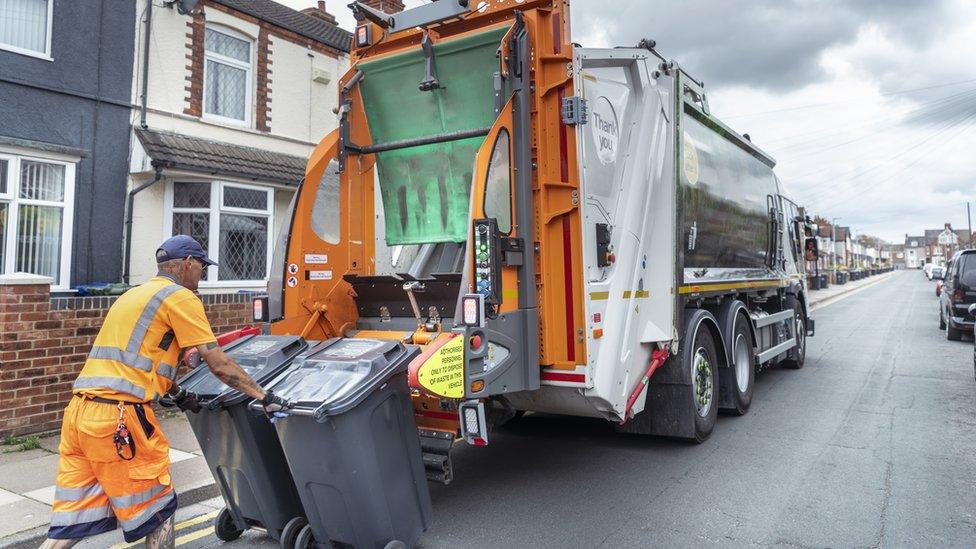Councils pay offer: Workers on lowest salaries offered 9% rise
- Published

Council workers on the lowest pay have been offered a rise of over 9%.
Around 1.5 million people in a range of roles would get an increase of at least £1,925 from April under the deal.
Unions representing groups like bin collectors, traffic wardens, social workers and school staff are now considering the offer.
The group representing 360 local authorities in England, Wales and Northern Ireland said the "full and final" offer would cost £1bn.
The local authorities involved in the talks are represented by the National Employers, a group made up of 11 senior council members authorised to represent them. Scottish councils are not involved in the talks.
The lowest paid staff - on £20,411 a year - would see the biggest lift, of 9.42%, under the deal. This contributes to an overall increase of 22% since April 2021 when previous rises are taken into account.
Council staff on higher pay would see a smaller rise of 3.88%.
Councillor Sian Goding, who chairs the local government negotiating group, acknowledged councils already dealing with squeezed budgets could struggle to fulfil the offer.
"The National Employers are acutely aware of the additional pressure this year's offer will place on already hard-pressed council finances, as it would need to be paid for from existing budgets," she said.
"However, they believe their offer is fair to employees, given the wider economic backdrop."
Two trade unions representing council staff said they would consider the offer before deciding whether to accept.
The GMB said it would discuss the offer further with National Employers but Unison struck a less positive tone.
Its head of local government Mike Short said "this offer falls short of the joint pay claim" and said the union "will now consider it and decide on next steps".
It comes as several sectors are involved in ongoing pay disputes, with more industrial action expected to disrupt public services over the coming weeks.
Junior doctors, rail staff, ambulance drivers and teachers are among the groups planning strikes.
The government has resisted pressure to offer larger pay rises, arguing it would fuel inflation and push prices higher.